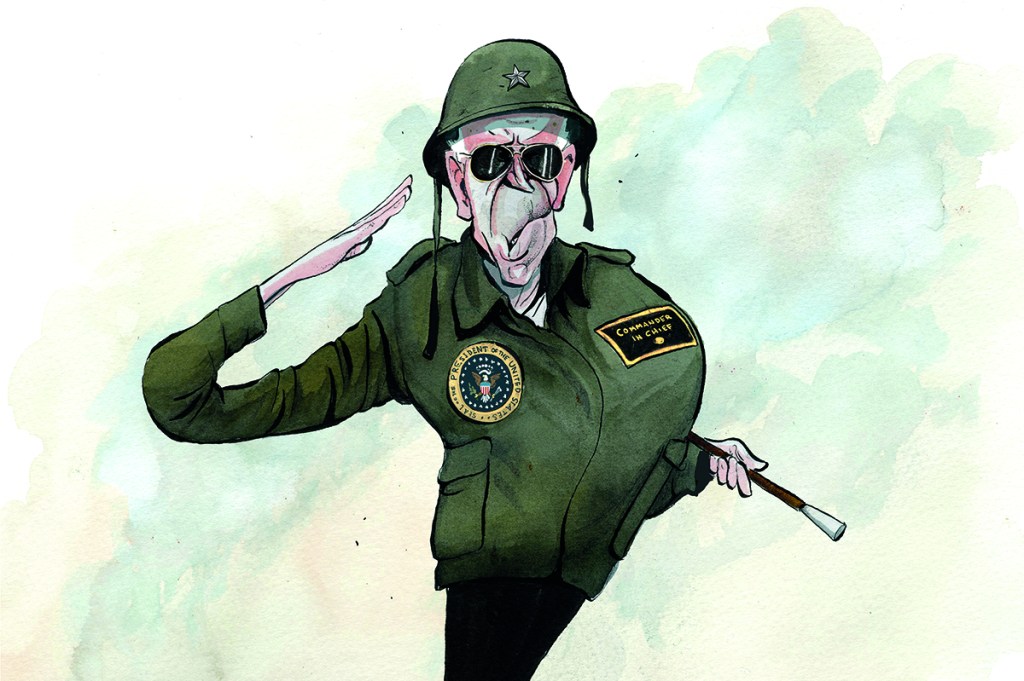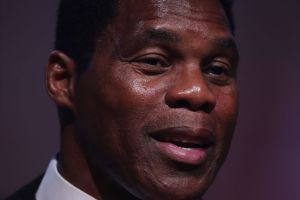Regarding America’s role in the world, Joe Biden’s ascent to the presidency offers this bit of prospective good news: the random flailing about of the Trump era will end. No more diplomacy conducted via Twitter. A modicum of consistency and predictability might once more become emblems of American statecraft. Some version of normalcy will be restored.
While all this will be welcome, it prompts a fundamental question: will a return to pre-Trump normalcy suffice as a response to the challenges that Biden is about to inherit? After all, the post-Cold War version of normalcy — the policies as pursued by presidents Bill Clinton, George W. Bush and Barack Obama — created the conditions that gave rise to Donald Trump in the first place.
By any measure, the normalcy of the post-Cold War era flopped. It underwrote delusions, the United States infamously anointing itself as history’s ‘indispensable nation’. It defined American global leadership primarily in military terms. Normalcy found expression in rampant military activism that left US forces mired in multiple unwinnable wars. All of this came with a price tag: something in the order of $6 trillion (thus far) plus tens of thousands of US troops dead or wounded, many grievously. Journalists are making much of the fact that Joe Biden is the oldest person ever to assume the office of the presidency. Arguably more relevant than age, however, is Biden’s exposure to and participation in a specific chronicle of events. As a politician, our next president has been a fixture on the national political scene going back as far as the Cold War — he was first elected to the US Senate in 1972 when the Vietnam War was still underway.
Perhaps more tellingly, his long career in public life encompassed the period following the collapse of communism, which seemingly inaugurated an era of American global primacy. It’s a career that has offered plentiful opportunities for learning.
But what exactly has Biden learned? Take his rhetoric at face value and the answer would seem to be not much. Earlier this year, Biden took to the pages of Foreign Affairs to lay out his foreign policy vision. The overarching theme of his essay was continuity. ‘This is the time,’ he wrote, ‘to tap the strength and audacity that took us to victory in two world wars and brought down the Iron Curtain.’ More such victories were now within reach, he asserted. ‘The triumph of democracy and liberalism over fascism and autocracy created the free world. But this contest does not just define our past. It will define our future, as well.’
Biden’s account of the relevant past was notably selective, quietly passing over the ruinous 2003 invasion of Iraq, which as chairman of the Senate Foreign Relations Committee he had supported. Biden also skipped past the disastrous 2011 US intervention in Libya, launched while he served as vice president. In other words, Biden is more comfortable reminiscing about the free world, an ancient construct of dubious relevance to the present moment, than in reflecting on his own role in calamitous events that created the world as it is today.
At age 78, is Biden capable of coming to terms with the policy failures of the recent past? Or will the Biden version of normalcy simply return the United States to an era when ostensibly intelligent people took it as a given that history itself had ‘ended’ with America having won the jackpot?
On that score, Biden’s picks to fill senior national security posts hint at what is to come. The early returns suggest that the Blob — the derisive term that Ben Rhodes coined to describe the foreign policy establishment — is comfortably back in the saddle. Biden has nominated Antony Blinken to fill the post of secretary of state. Jake Sullivan will serve as national security adviser, with Avril Haines slated as director of national intelligence. Former secretary of state John Kerry, nearly as old as Biden himself, returns as the first ever climate czar. Without exception, these are bona fide Blobsters, with impressive résumés and vast experience gained while serving in previous Democratic administrations.
The mainstream press has greeted these announcements with a great sigh of relief. Here is a clear signal that all will be well. Describing Blinken, for example, as ‘urbane’ and ‘a born internationalist’, the Guardian saw his appointment as evidence that ‘the US is back as a conventional team player’. Blinken will ‘lead the US back towards leadership on the world stage.’ The New York Times described him as a ‘defender of global alliances’ and the Washington Post as a ‘non-ideological consensus builder’ and a ‘genuine Atlanticist’. The applause for the rest of the Biden team has been equally warm, with bonus points awarded for diversity.
Salvaging the Iran nuclear deal and the New Strategic Arms Reduction Treaty set to expire in February 2021 would qualify as significant achievements. So too would devising an effective and humane solution to the problem of undocumented migrants and renewing the Obama administration’s opening to Cuba. Ceasing to piss all over our Nato allies would also be commendable, as would refusing to kowtow further to Benjamin Netanyahu.
But in some respects, these qualify as obvious correctives. They move the ball back where it was when Biden, Blinken and the rest were working for Barack Obama. That the Biden team will undertake anything more ambitious appears unlikely. Rather than assembling a ‘team of rivals’, he is recruiting a ‘team of centrists’, who came of age politically when the events of 1989 ostensibly elevated the United States to the status of sole superpower presiding over a unipolar world. If the so-called unipolar moment ever existed, it has long since ended. Do Biden and his team understand that?
Real change will require more ambitious actions. Let me suggest some specific candidates: persuading Congress to repeal the 2001 Authorization for Use of Military Force (AUMF); definitively ending the endless Middle East wars; reducing the US military footprint overseas; scrapping the trillion-dollar-plus modernization of the US nuclear strike force; converting the armed forces into an instrument of national defense rather than of global power projection; cutting the Pentagon budget to free up resources needed to fulfill Biden’s ‘build back better’ vision of domestic renewal.
Don’t count on the Biden administration to do any of these things. Should it do so, however, a new normalcy relevant to the nation’s pressing needs might come within view.
This article was originally published in The Spectator’s January 2021 US edition. Andrew Bacevich is president of the Quincy Institute for Responsible Statecraft.


















